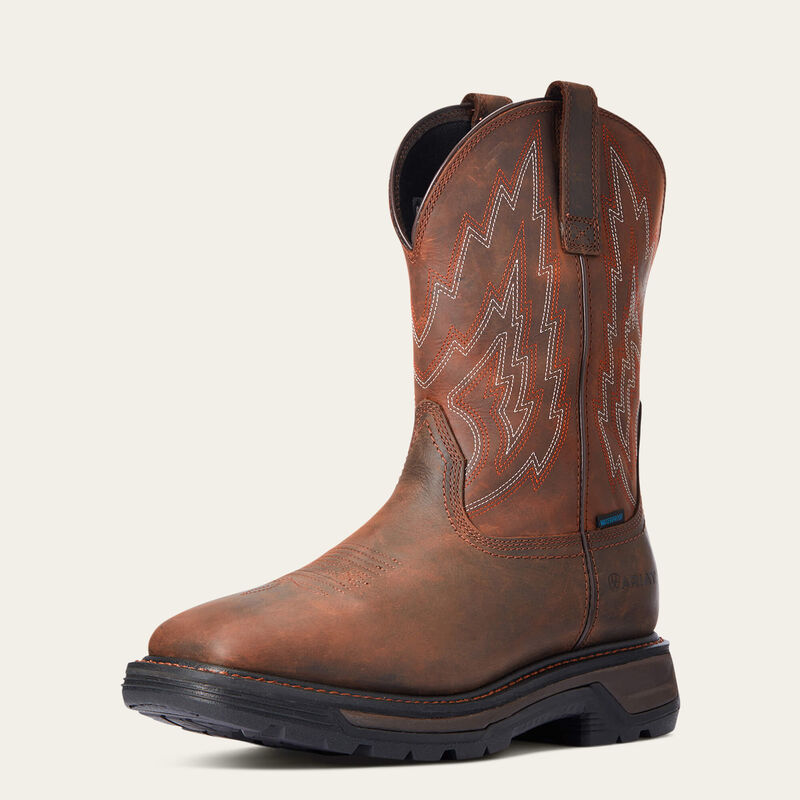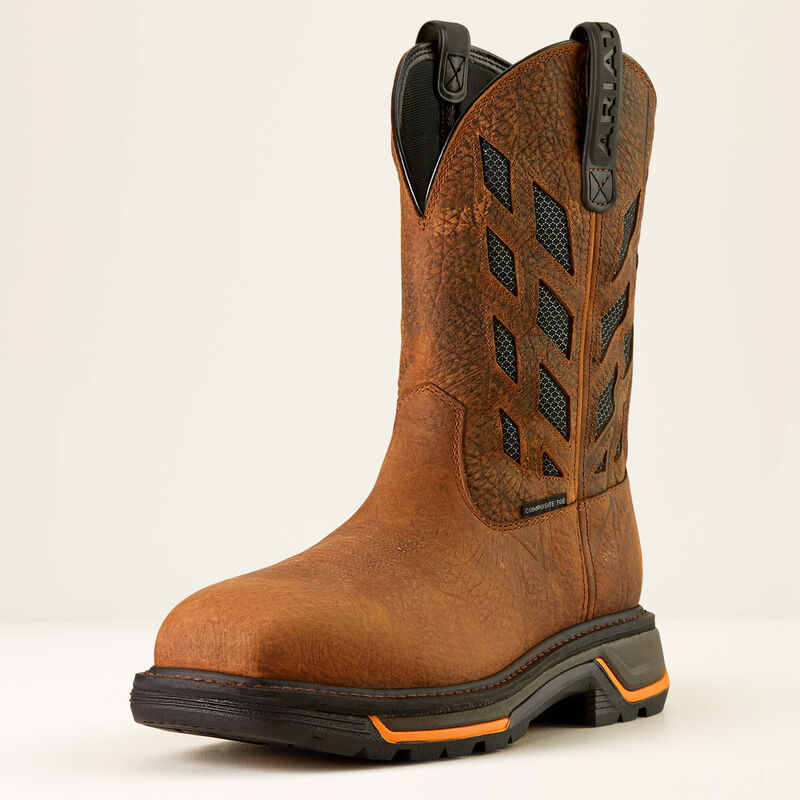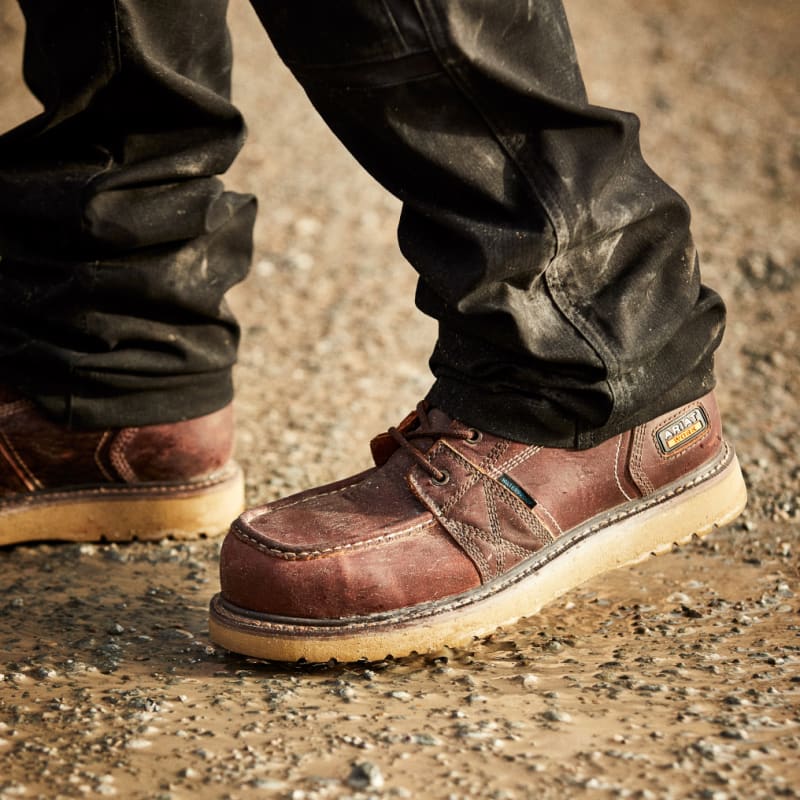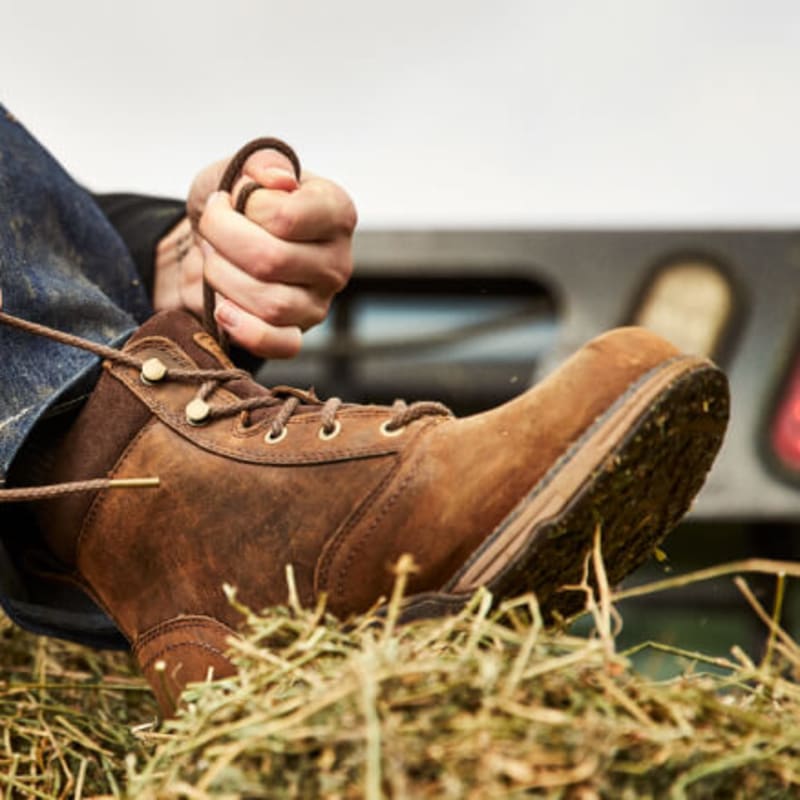
How to Find the Best Wide Calf Work Boots: Five Essential Steps for Comfort and Fit
Finding work boots that truly fit, especially if you have wider calves, can be tough, but it shouldn't be a struggle. This guide breaks down five essential steps to help you find your best fit and highlights Ariat work boots designed with a roomier opening for easy, all-day wear.
Step 1: Know When You Need a Wide-Calf Work Boot
What size is considered wide calf?
There’s no universal measurement for a “wide calf” because everyone’s build is different. If you often feel tightness or pressure around the shaft, which is the part of the boot that runs from your ankle to the top, it may be a sign that you would benefit from a boot with a wider opening or added stretch for greater comfort.
If pulling on your boots feels like a chore or they restrict movement, it may be time to try a design with added space through the shaft. Not sure what ideal fit looks like? This in-depth guide walks you through it: How Should Work Boots Fit.
Step 2: Understand How Calves and Boot Height Interact
A snug or narrow shaft can cause discomfort, leading to chafing, circulation issues, or even pain after a long shift. In some cases, tall shafts that rise too high on the leg can cause pressure, especially if the calf area lacks flexibility or stretch.
Another overlooked fit factor? Sock choice. Thin or low-cut socks can increase friction and reduce comfort. Instead, go with taller, cushioned work socks that provide padding and prevent rubbing.
Fit Tip: Always try on your boots with the socks you plan to wear on the job.

Step 3: Choose Styles That Work With Your Calves
Boot height isn’t just about aesthetics—it plays a big role in fit. Taller shafts cover more of your calf, which means they need to be built with extra room. Shorter styles typically land below the widest part of your calf and offer more flexibility and wiggle room.
Work Boot Style Breakdown
Lace-Up Work Boots
Boot Height Range: 6–8 inches
Why it matters: The laces in lace-up work boots let you customize tension throughout the boot. You can tighten where you need more support or loosen for extra flexibility. This is especially useful if:
- Your feet swell during the day.
- You wear different thicknesses of socks depending on the season.
- You need targeted support for tasks that involve kneeling, squatting, or climbing.
Pull-On Work Boots
Boot Height Range: 10–11 inches
Why It Matters: Pull-on work boots are designed for ease and efficiency—no laces, no fuss. With taller shafts typically ranging from 10 to 11 inches, they offer greater leg coverage and protection. But this extra height also means it's crucial to get the right fit through the calf. Look for:
- Roomier openings that allow for easy sliding on and off.
- Elastic gore panels or stretch-fit shafts that expand as needed without losing shape.
- Cushioned insoles to keep your foot secure once inside.

Step 4: Choosing the Right Dimensions
How Do I Measure My Calf for Work Boots?
Numbers help—but they don’t tell the full story. Fit is also about how a boot moves with you. Start by measuring to get a baseline, then listen to how your body feels in the boot.
Calf Measuring Guide
- Sit with your feet flat on the ground, knees at a 90-degree angle.
- Wrap a soft tape around the widest part of your calf, not too tight or too loose.
- Measure both calves and go with the larger number.
- Measure from your ankle to the top of your calf to determine shaft height compatibility.
Fit Tip: Don’t Ignore the Feeling
Even if your measurements fall within the “standard” range, discomfort like pinching, rubbing, or difficulty pulling boots on is a sign that you may need a wider shaft. Boots should feel secure but never restrictive, especially at the top of the shaft.

Step 5: Explore Ariat Wide Calf Work Boot Options
Our Big Rig® collection is engineered for hardworking individuals who need extra space where it matters. Each boot has a more generous fit through the shaft and instep, along with work-ready features, like ample cushioning and incredible durability.
Big Rig Pull-On Work Boots
Learn more about BOA work boots with our in-depth guide.
Big Rig Lace-Up Work Boots
Final Thoughts
If you’ve struggled with tight shafts, hard-to-pull-on styles, or aching calves at the end of your shift, it’s time to try a boot designed specifically for your body. Our Big Rig work boots have a roomier fit through the shaft and instep, and we pair them with features like waterproofing, composite toes, VentTEK cooling technology, and the innovative BOA Fit System for a faster on/off experience.
Not sure where to start? Learn how to get the right fit from the ground up with our Work Boot Fit Guide, or browse our full range of pull-on work boots and lace-up work boots to find the pair that works best for your calf size, job type, and daily demands.
FAQs: Wide-Calf Work Boots
Are lace-up or pull-on boots better for wide calves?
It depends on your needs. Lace-up boots offer more adjustability around the ankle and lower calf, while pull-on boots with wider shafts are great for quick changes and a clean silhouette. Ariat has both options in wide calf designs.
Do Ariat wide calf boots come in safety toe options?
Yes! Many of our wide calf styles, including the Big Rig series, are available with soft toe or composite toe options to suit your job’s safety requirements.
What are work boots with BOA, and are they good for wide calves?
Work boots with the BOA Fit System use a dial-based closure instead of laces, making it fast and easy to adjust your fit. When paired with a boot with a wider shaft, like the Ariat Big Rig BOA style, they offer both convenience and all-day comfort for wider calves.









